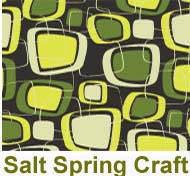 This can probably be attributed to my upbringing. As a Chinese girl living in an examination-oriented Asian city, my mother would cook me some traditional Chinese brew or other soup from the Sinseh down the street (traditional Chinese herbalist) that would be good for me. Make me strong and help me concentrate on my studies. And, inevitably taste like gunky, murky, bitter sludge. The dried sea-horses bobbing up & down the brew didn't help make it more appetising.
This can probably be attributed to my upbringing. As a Chinese girl living in an examination-oriented Asian city, my mother would cook me some traditional Chinese brew or other soup from the Sinseh down the street (traditional Chinese herbalist) that would be good for me. Make me strong and help me concentrate on my studies. And, inevitably taste like gunky, murky, bitter sludge. The dried sea-horses bobbing up & down the brew didn't help make it more appetising.So now as I read about all the health benefits of Rooibos (pronounces ROY-bus) tea, my taste buds,uncannily, start to taste sea-horse.
But working part-time in a tea shop soon dissolved my unreasonable preconception that rooibos would taste disgusting.
 Because in this same tea shop, I found that rooibos could be blended with Moroccan mint & rose petals, with mango, with
Because in this same tea shop, I found that rooibos could be blended with Moroccan mint & rose petals, with mango, with vanilla, berries, almond & macadamians and, the top of my list, with creme caramel. Yummy & good for you. What could be better?
vanilla, berries, almond & macadamians and, the top of my list, with creme caramel. Yummy & good for you. What could be better?Apparently, rooibos tea contains no colours, additives or preservatives, making it a natural beverage. It also has no caffeine (because it is not from the official Tea plant, Camellia sinensis), which makes it great for kids and as a late night substitute for tea.
And according to studies conducted in
 Japan, Rooibos has been shown to aid in health problems such as insomnia, irritability, headaches, nervous tension, and hypertension.
Japan, Rooibos has been shown to aid in health problems such as insomnia, irritability, headaches, nervous tension, and hypertension.From an article on http://www.herbalgram.org
" Rooibos (Aspalathus linearis
Rooibos is the only known source of the phytochemical aspalathin. In vitro and animal studies have indicated that quercetin and luteolin help to prevent cardiovascular disease, some cancers and stroke. Rutin has been associated with the maintenance of blood vessels walls."
Like I said, yummy & good for you....what could better?




No comments:
Post a Comment